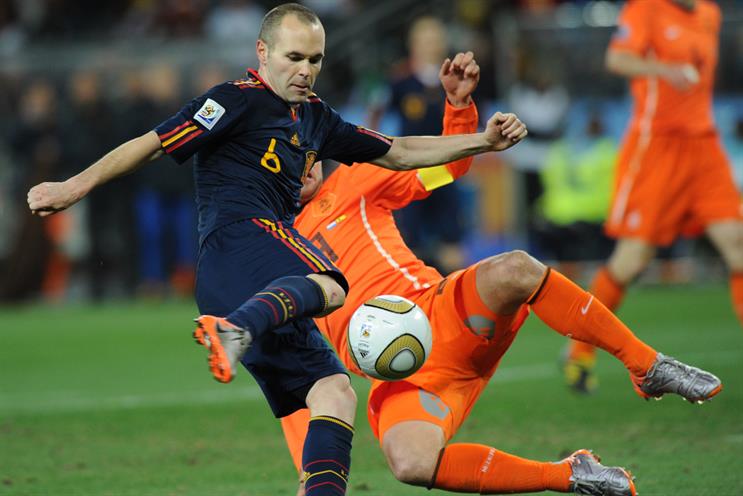
As tension builds ahead of the 2014 World Cup draw on 6 December, agencies are preparing to strike advertising deals for what is being billed as the most exciting football tournament ever.
Brazil is the spiritual home of football and provides a vibrant, sexy, tropical backdrop for the finals, which are likely to attract massive audiences.
The draw will determine the line-up of the group stages, which kick off on 12 June next year. ITV and the BBC will immediately go into talks to work out how they divvy up the games.
According to Chris Locke, the UK trading director at Starcom MediaVest Group, the usual pattern is for ITV to broadcast three of the first four England games, with the BBC in line for later matches, if there are any.
Analysts at Numis Securities estimate that the World Cup could be worth £30 million in extra revenues for ITV, and Locke believes the tournament could add £60 million in UK revenues across all media, with outdoor, digital and mobile getting a particularly strong boost.
During the 2010 World Cup, ITV’s June revenues soared 45 per cent. June 2014 could be even more impressive given the Brazil factor. However, some clients still need to be persuaded to advertise during the World Cup.
"Clients say: should we go into it? Is our creative strong enough? There can be a lot of umming and ahhing," Locke explains. "The answer is: yes, it is once in four years – if you’re thinking about it, then you probably should.
"It is really the biggest sporting event on TV. It’s an opportunity to get people to reappraise your brand, and there are opportunities to do great creative without spending the earth."
TalkSPORT has struck a deal with Fifa to broadcast all the matches. Adam Mills, its sales director, says the timing is an advantage for radio as the games coincide with drivetime and bedtime. "This is a good opportunity for us – we are the only audio UK station to cover all the games," Mills points out. BBC Radio 5 Live will also broadcast a number of matches.
UK commercial media will not have the playing field to themselves, with the BBC promising major innovations. Its director of sport, Barbara Slater, writes in her blog: "The BBC will be offering more content than ever, with an aspiration to deliver a 24-hour service, personalised according to whatever device or platform that audiences want to use." Locke wonders if this could mean a "personalised" view of goals, offering online users a choice of camera angles to view the action.
Chris Binns, a managing partner at MediaCom, also expects this to be the first truly social World Cup, with YouTube and Facebook coverage expected to be backed by some major advertisers. He believes ITV will be under pressure to pull off something spectacular now that it has lost the rights to the Uefa Champions League and suggests it might try to be the first broadcaster to get the merged worlds of mobile and short-form video right.
There is no doubt that, for brands, agencies and sports fans alike, football in Brazil will be the only game in town next summer.

